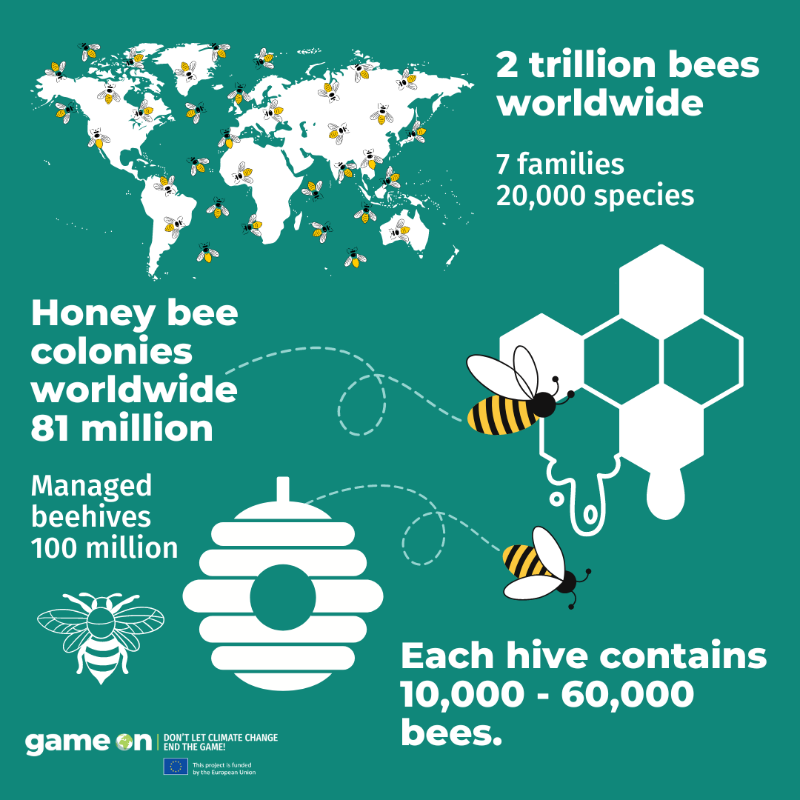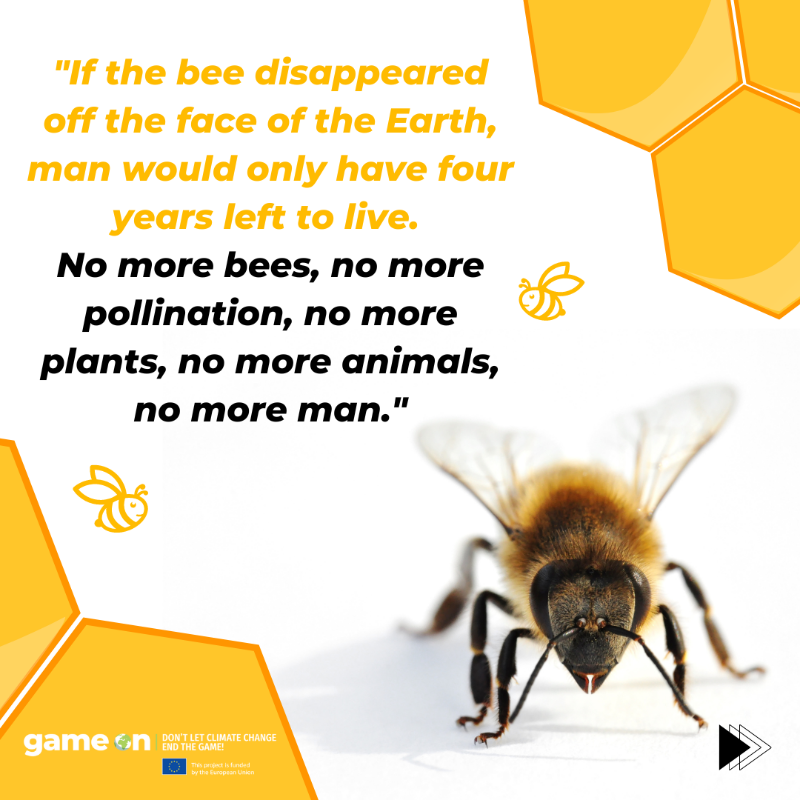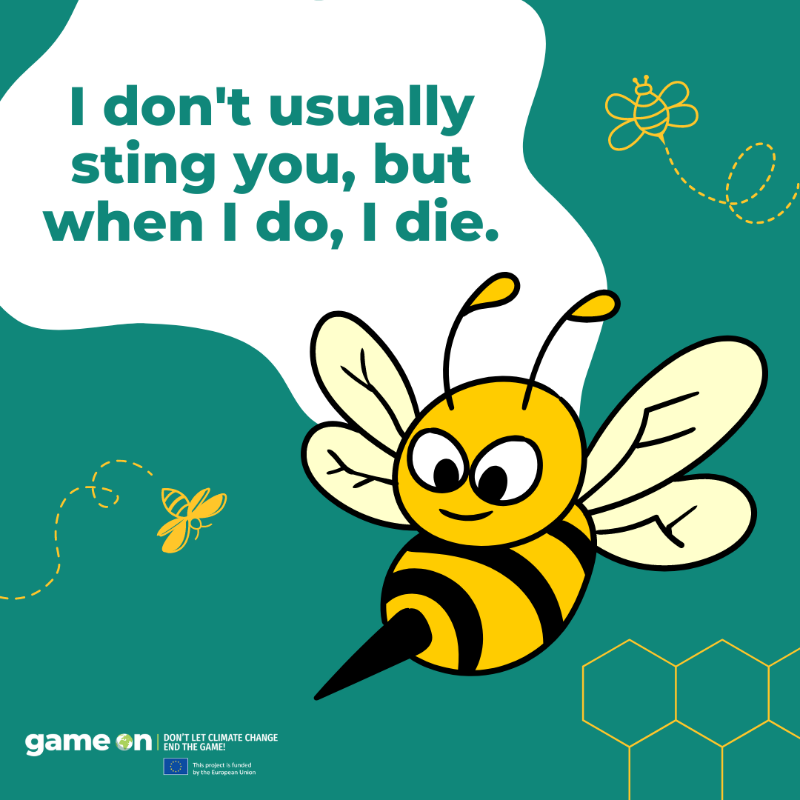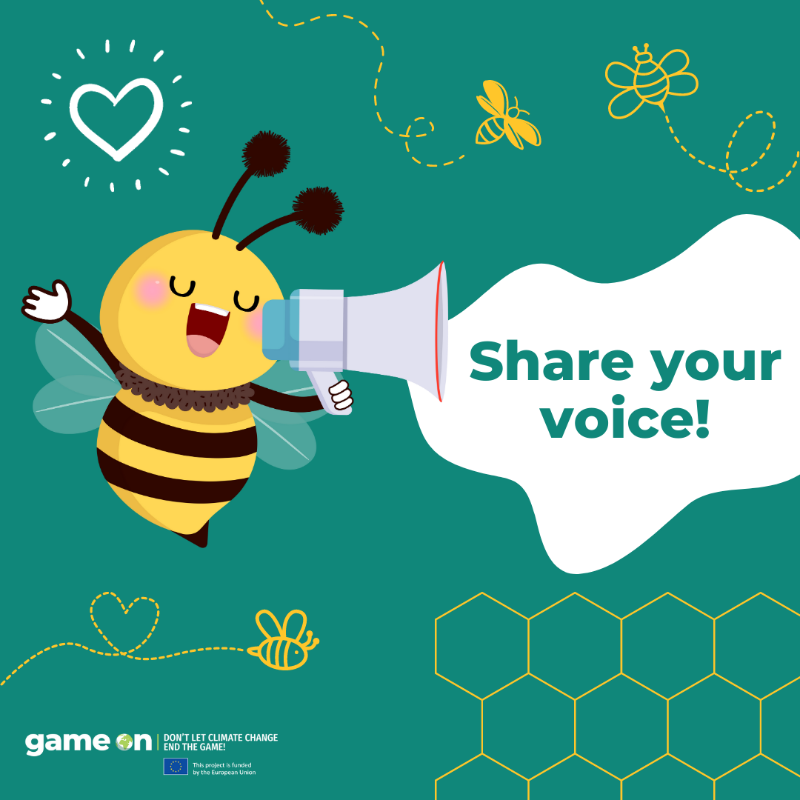Today, every third spoonful of food depends on pollination. Not to mention, bee products are a rich source of essential nutrients. Bees are some of the most important pollinators, ensuring food and food security, sustainable agriculture, and biodiversity, and they significantly contribute to the mitigation of climate change and the conservation of the environment.
Without bees, our diets would be depressingly poor.
Slovenia proposed to the United Nations (UN) proclaim 20 May as World Bee Day approved Slovenia’s proposal. The date that was selected was the birthday of the great bee expert from the 18th century, Anton Janša. Janša was the first bee-keeping teacher in the court of the Habsburg Empress Maria Theresa.
In the long-term, the protection of bees and the beekeeping sector can help reduce poverty and hunger, as well as preserve a healthy environment and biodiversity. Honey bees have been under huge stress for several years, due to intensification of agricultural practices as well as climatic changes and globalization, which bring new diseases to bees. European Honey Bees (Apis mellifera), are the worker bees. This is the champion bee pollinator, the pollinator for the majority of our crops. Other types of bees are Bumble bees, and Cuckoo Bees. The colorful yellow and black-striped insect is a wasp, and it’s not always easy to tell a wasp from a bee, even for the experts.

What will happen when all the bees are gone?
Bees are key part of the global food system and pollinate 75 % of our food crop. If insecticides are sprayed too frequently, then vital pollinators cannot survive. The most dramatic example comes from the apple and pear orchards of south west China, where wild bees have been eradicated by excessive pesticide use and a lack of natural habitat. Farmers have been forced to hand-pollinate their trees, carrying pots of pollen and paintbrushes with which to individually pollinate every flower, and using their children to climb up to the highest blossoms. This is clearly just possible for this high-value crop, but there are not enough humans in the world to pollinate all of our crops by hand.

Why? There are at least 2 trillion bees currently in the world. Estimates place the number of honey bee colonies worldwide at 81 million and the total number of managed beehives at about 100 million. Each hive contains anywhere from 10,000 to 60,000 bees.
In October 2022 The European Citizens Initiative (ECI) Save Bees and Farmers has passed the 1 million valid signatures milestone. The certificates of 27 EU member states have been accepted. This success marks a very clear and loud wish by EU citizens to strongly reduce pesticide use.
Maja Lunde, the Norwegian writer, wrote a bestseller book about this topic: The history of Bees. In this story we are in 2098 and the bees have long since disappeared. And people paint pollen onto trees. In order to survive. This is a terrifying future. But we can still change it! Bees need our help. More than ever.

The good example of how to protect bees
In 2011 Slovenia became one of the first countries in the EU to prohibit the use of certain pesticides most harmful to bees. Beekeeping heritage permeates Slovenian culture. In the small Central European country, approximately one in 200 people keep and tend to bee colonies. Meaning there are 12000 beekeepers in the country. Locals share a deep respect for the bees as indispensable pollinators in the food system, and honey appears often in traditional Slovenian delicacies. Beekeeping tradition runs so deep that in the Slovenian language, saying one's "ax fell into the honey" is a proverb used to describe a sudden stroke of good luck.
Think You Know Bees and Biodiversity? Take Our Quiz and Find Out!
Let’s make our luck and create our heavenly garden for bees and pollinators and give nature a helping hand. Here is how:
- Set up a bee garden right away! Choose bee-friendly plants
- Plant through the seasons to provide year-round bee habitat
- Plant a mix of bee-friendly seeds and grow plants, fruit and vegetables
- Cut grass on meadows only after the nectar-bearing plants have finished blooming
- Give bees shelter by letting the grass grow! Save the bees and put away the pesticides!
- Grow from seeds to create great bee habitats!
- Buy honey and other hive products from your nearest local beekeeper!
- Create bee hotels in your garden! Bee hotels are the insect equivalent of a birdhouse. Honey bees are the main pollinators in commercial agriculture, but they do not use bee hotels. Neither do the Bumble bees.
.jpg)
Biodiversity is crucial for our Planet, and bees are a very important part of it. This is why 'Game On!' has developed the Climate Compact, an open online course about climate change, its social and economic impacts in Europe and the Global South, its links with ecosystem decline, and the role of communications for countering climate skepticism.

We think that raising awareness on the importance of bees and expressing your support for beekeepers is crucial. We would like to see your story. Share your short support video (30-60 seconds long) with messages in line with the motto “I want a better future, so I also stand behind this campaign” whether in English or your national language. More informations are here: https://climategame.eu/mystory



.png)



